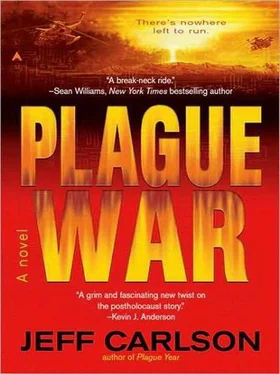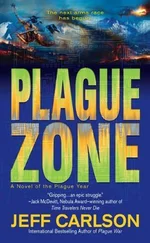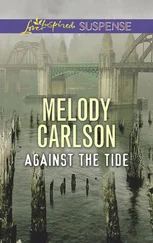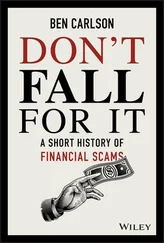Jeff Carlson - Plague War
Здесь есть возможность читать онлайн «Jeff Carlson - Plague War» весь текст электронной книги совершенно бесплатно (целиком полную версию без сокращений). В некоторых случаях можно слушать аудио, скачать через торрент в формате fb2 и присутствует краткое содержание. ISBN: , Жанр: Триллер, на английском языке. Описание произведения, (предисловие) а так же отзывы посетителей доступны на портале библиотеки ЛибКат.
- Название:Plague War
- Автор:
- Жанр:
- Год:неизвестен
- ISBN:1-4362-4416-1
- Рейтинг книги:3 / 5. Голосов: 1
-
Избранное:Добавить в избранное
- Отзывы:
-
Ваша оценка:
- 60
- 1
- 2
- 3
- 4
- 5
Plague War: краткое содержание, описание и аннотация
Предлагаем к чтению аннотацию, описание, краткое содержание или предисловие (зависит от того, что написал сам автор книги «Plague War»). Если вы не нашли необходимую информацию о книге — напишите в комментариях, мы постараемся отыскать её.
Plague War — читать онлайн бесплатно полную книгу (весь текст) целиком
Ниже представлен текст книги, разбитый по страницам. Система сохранения места последней прочитанной страницы, позволяет с удобством читать онлайн бесплатно книгу «Plague War», без необходимости каждый раз заново искать на чём Вы остановились. Поставьте закладку, и сможете в любой момент перейти на страницу, на которой закончили чтение.
Интервал:
Закладка:
The environment seemed to be changing with the rise in the land. They’d walked into an area where at least some reptiles had survived — and they were still barely ‚ve hundred feet above sea level with at least eighty miles to go in this bizarre, lethal world. She did not want to fail Cam, but what if they’d made the wrong choice?
He was already scouting a way past the snakes, hauling himself onto the hood of a Toyota to look around. The car rocked against another vehicle, screeching. Beyond him, though, the road stretched on and on, and her feet were already a mess of blisters and strained tendons and bones.
Ruth was no longer sure they could make it.
8
The intelligence agent following Ulinov carried an open †ip phone down alongside his body like a knife, allowing the two of them to be tracked every step of the way through the congested streets of downtown Leadville.
Nikola Ulinov was a big man, but he constantly let himself be delayed as people shifted and ebbed around the sandbagged gun emplacements. For one thing, it made it very dif‚cult to tail him. He’d already spotted a second agent struggling to remain unseen despite his stop-and-go pace.
Ulinov stood at a hundred and eighty-eight centimeters. The Americans would have said six-two in their quick slang. He normally had the edge in any crowd. The former cosmonaut was large for a graduate of the Russian Federal Space Agency, thick in the shoulders and chest. His limp only made him more imposing. Most people angled away from him without thinking, but he was in no hurry. It had been two days since he’d had an excuse to cross the city and he was taking notes.
He was a weapon. That was the basic truth of it, and that was how he felt, not hateful but full of purpose. A weapon does not hate. It only serves. His ammunition was merely what he stole from them with his eyes and ears — and yet day by day he became more dangerous.
He kept his face down like most of the civilians, hunched into his coat. Each time his gaze †ickered up, he was afraid he would give himself away. Every step he took sideways or back to avoid the other men and women was more than an act. He walked among them as if he was wearing a bomb and it seemed impossible that no one could sense what was different in him, his thoughts, his poise. He was the enemy.
Perhaps that would change. He hoped for it. Nearly from the beginning, his people and the Americans had established an alliance, although that partnership had consisted of little more than words transmitted from one side of the world to the other. The Americans were too engrossed in their own survival, and by the end of the second winter, all that remained of Russia were a few million refugees with no real wealth or power. Until now.
On the face of it, that was why Ulinov had been brought down from the space station, as a proven and highly visible representative for his shattered government, bilingual, trained in diplomacy, experienced at working with and even commanding Americans. But he needed to be more. His people were desperate for any advantage.
He hadn’t found it. As far as Ulinov could tell, Leadville’s strength was growing. Not by much. They had their own problems, yet even a slight improvement went drastically against the global trend. He had witnessed this ‚rsthand aboard the ISS, looking down on the planet as survivors everywhere fell silent.
You don’t realize your luck, he thought, and found himself glancing up too long. He made eye contact with a sunburnt young Army corporal standing at the edge of the sidewalk in full battle rattle — helmet, parka, gloves, and submachine gun. The boy’s expression tightened and Ulinov worried what had shown in his own eyes. Envy? Anger?
Ulinov didn’t dare look back. It was important that the two intelligence agents didn’t think he was aware of them, and yet his bitterness stayed with him like a shout.
You don’t realize. You have so much.
The new U.S. capital sat at 10,150 feet on a bit of †at ground cradled among towering white peaks. There had never been many trees at this elevation — absolutely none, now, all burned for fuel during the ‚rst winter — and Leadville was a collection of old brick and modern concrete. Anchoring main street were two heritage museums and a well-preserved opera theater built in 1870.
Even in the twenty-‚rst century, the wide boulevard still had the shape of the American frontier, designed to accommodate wagons and horses. Before the plague, this town had been home to less than four thousand people, but all of the historical buildings and breakfast cafes had been turned into command centers for civil, federal, and military staffs.
It was a foothold. Hotels, of‚ces, and private homes had been packed with survivors, even the gas stations and the laundromat. Prefab warehouses and tents ‚lled many of the side streets, rooftops, and parking lots. It was enough.
If he closed his eyes, the crowd almost reminded him of Kiev and Moscow and Paris, boot heels on pavement, the rustle of people wisking against each other. And yet the pace was wrong, as were the human sounds. No one ran because they were late for work or a show or lunch. No one laughed or shouted.
Ulinov came up against the back of a man who was engrossed with his cell phone, turned to face the brick wall of a bank. The man did not speak. He only texted, working his thumb on the phone’s touch pad. Ulinov slipped by and immediately saw another woman tapping into her cupped hands, the bridge of her nose chapped and pink much like the young soldier’s face. At this altitude, daylight seethed with ultraviolet, and there was no longer any sunscreen to be had at any price.
The important thing was the phones. The government staffers, soldiers, doctors, machinists, electricians, and other critical personnel were all linked together by a local array of cellular towers and wireless Internet built during the plague year, and yet Ulinov had never heard anyone speaking into them in more than a hush. They were afraid of in‚ltrators. Their war was against their own people, and how could they be sure who was on their side when the enemy looked like them and talked like them?
In many ways it was as if winter still held Leadville beneath eight feet of snow and subzero temperatures. These people were still waiting. They were frozen. Even with the ‚ghting, too many of them didn’t have enough to do, and every mouth to feed was a strain. Everyone worried that they were expendable.
For the most part, Ulinov had only seen what the government wanted him to see in the eighteen days since he’d evacuated the ISS. There had been a parade. He had received superb medical care and extra rations. But the pretense was gone.
Leadville was a fortress, walled in by layer upon layer of garrisons, armored units, outposts, and scouts — and like a muscle, it was †exing. The sky had reverberated for days as they launched air sorties, the roar of jets and support craft lifting away from the mountains. Ulinov had trouble keeping a sure count. He couldn’t always be outside or move to a window. The USAF also seemed to be simply repositioning their planes, clearing out the crowded little airport on the south side of town, landing many nearby on the highways to the north instead, and some of the short †ights overhead were only small civilian craft or fat commercial planes.
Leadville was also reequipping special ground units, ‚lling the main thoroughfare with missile carriers and Abraham tanks, cracking the surface of the road beneath these lumbering machines. Ulinov had counted at least six motorized units in each of the four blocks he’d covered so far, and he glimpsed roughly the same number on the street ahead. Motorized cannon. Squat APCs for the soldiers who would support the artillery. Yesterday the streets had rumbled early in the day and again at night, the vehicles moving in and out to be followed by another group this morning. A second wave.
Читать дальшеИнтервал:
Закладка:
Похожие книги на «Plague War»
Представляем Вашему вниманию похожие книги на «Plague War» списком для выбора. Мы отобрали схожую по названию и смыслу литературу в надежде предоставить читателям больше вариантов отыскать новые, интересные, ещё непрочитанные произведения.
Обсуждение, отзывы о книге «Plague War» и просто собственные мнения читателей. Оставьте ваши комментарии, напишите, что Вы думаете о произведении, его смысле или главных героях. Укажите что конкретно понравилось, а что нет, и почему Вы так считаете.












